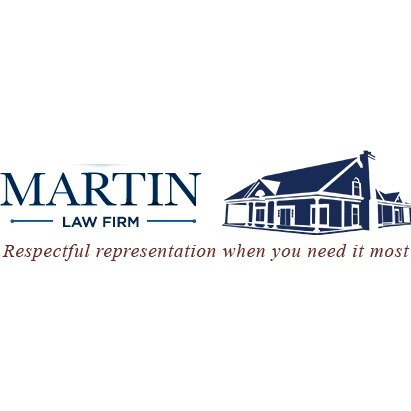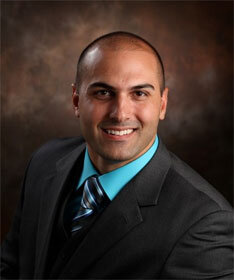Best Personal Injury Lawyers in Arkansas
Share your needs with us, get contacted by law firms.
Free. Takes 2 min.
Or refine your search by selecting a city:
List of the best lawyers in Arkansas, United States
About Personal Injury Law in Arkansas, United States
Personal injury law in Arkansas refers to the set of legal rules and processes that allow people who are injured due to someone else’s negligence or wrongful actions to seek compensation. These injuries can be physical, emotional, or financial. Common examples include car accidents, slip and falls, medical malpractice, and defective products. The purpose of personal injury law is to restore the injured person as much as possible to the position they were in before the injury.
In Arkansas, personal injury claims are generally resolved through negotiation and settlement, but in some cases, lawsuits may be filed, and a court decides the outcome. Arkansas law sets time limits for starting a claim, specifies who can be held liable, and outlines what types of damages may be awarded.
Why You May Need a Lawyer
Navigating a personal injury claim is often complex, and having legal guidance can be crucial. Here are common situations where people in Arkansas may seek legal help:
- If you have been injured in a car, truck, or motorcycle accident and need to recover damages for medical bills, lost wages, or pain and suffering.
- If you were hurt on someone else’s property due to unsafe conditions, such as slip and fall accidents at a business or private residence.
- If a loved one suffered injuries or death due to someone else’s negligence, such as in wrongful death or medical malpractice cases.
- If an insurance company denies your claim or offers a settlement that does not cover your losses.
- If you suspect a defective product caused your injury and need to hold a manufacturer or seller accountable.
- If you are overwhelmed by paperwork, deadlines, or legal procedures involved in the claims process.
Local Laws Overview
Arkansas has specific statutes and case law that affect personal injury claims:
- Statute of Limitations: In Arkansas, most personal injury claims must be filed within three years from the date of the injury. Missing this deadline usually means losing your right to pursue compensation.
- Comparative Fault: Arkansas follows a modified comparative negligence rule. If you are partially at fault for your injury, your compensation may be reduced by your percentage of fault. If you are found to be 50 percent or more at fault, you cannot recover any damages.
- No-Fault Rule: Arkansas is not a no-fault state. That means that generally, the person who caused the accident is responsible for covering injuries and damages.
- Damage Caps: Arkansas does not place a cap on most personal injury damages, meaning there is no maximum limit on compensation for things like pain and suffering, except in certain medical malpractice cases.
- Dog Bite Liability: Arkansas does not have a specific dog bite statute, so liability generally depends on local ordinances and the owner’s knowledge of the dog’s behavior.
Frequently Asked Questions
What should I do immediately after an accident or injury in Arkansas?
You should seek medical attention for any injuries, report the incident to the proper authorities, gather evidence such as photos and witness statements, and avoid admitting fault. Contacting a lawyer early can help protect your rights.
How long do I have to file a personal injury lawsuit in Arkansas?
You usually have three years from the date of the injury to file a lawsuit. However, some exceptions may shorten or extend this period, so consult a lawyer promptly.
Do I need to prove someone else was at fault?
Yes, in most cases you must show that another person or entity’s negligence, recklessness, or intentional act caused your injury.
What types of compensation can I recover?
You may be entitled to compensation for medical expenses, lost wages, pain and suffering, property damage, and in some cases, punitive damages.
Can I still recover damages if I was partly at fault?
You can recover damages if you are less than 50 percent at fault. Your compensation will be reduced by your percentage of fault.
What happens if the at-fault party has no insurance?
You may be able to seek compensation through your own insurance policy or by filing a lawsuit directly against the responsible party. An attorney can help you explore your options.
How do personal injury lawyers get paid?
Most personal injury lawyers in Arkansas work on a contingency fee basis. This means they only get paid if you receive compensation, usually as a percentage of your recovery.
Will my case go to court?
Many personal injury cases are resolved through settlement outside of court. However, if a fair agreement cannot be reached, your attorney may advise filing a lawsuit and going to trial.
What evidence is important in a personal injury claim?
Medical records, accident reports, witness statements, photos or videos of the scene, and documentation of expenses are all important for supporting your claim.
How long will it take to resolve my claim?
The time it takes to resolve a personal injury case varies. Simple cases may settle in a few months, while more complex cases involving serious injuries or litigation may take several years.
Additional Resources
- Arkansas Judiciary - Information about court locations, processes, and records.
- Arkansas State Bar Association - Find qualified personal injury attorneys and general legal information.
- Arkansas Department of Insurance - Explains your rights and responsibilities with insurance claims.
- Arkansas Attorney General's Office - Offers resources and support for consumer protection and victims’ rights.
Next Steps
If you have suffered an injury and believe you have a personal injury claim in Arkansas, it is important to act promptly. Start by gathering relevant documents and evidence, seek necessary medical treatment, and avoid discussing the case with insurance adjusters before consulting legal counsel. Consider scheduling consultations with qualified personal injury attorneys who can evaluate your case and explain your options. Most attorneys offer free initial consultations and do not require payment unless you recover compensation. Acting early can help protect your rights and improve your chances of a successful outcome.
Lawzana helps you find the best lawyers and law firms in Arkansas through a curated and pre-screened list of qualified legal professionals. Our platform offers rankings and detailed profiles of attorneys and law firms, allowing you to compare based on practice areas, including Personal Injury, experience, and client feedback.
Each profile includes a description of the firm's areas of practice, client reviews, team members and partners, year of establishment, spoken languages, office locations, contact information, social media presence, and any published articles or resources. Most firms on our platform speak English and are experienced in both local and international legal matters.
Get a quote from top-rated law firms in Arkansas, United States — quickly, securely, and without unnecessary hassle.
Disclaimer:
The information provided on this page is for general informational purposes only and does not constitute legal advice. While we strive to ensure the accuracy and relevance of the content, legal information may change over time, and interpretations of the law can vary. You should always consult with a qualified legal professional for advice specific to your situation.
We disclaim all liability for actions taken or not taken based on the content of this page. If you believe any information is incorrect or outdated, please contact us, and we will review and update it where appropriate.
Browse personal injury law firms by city in Arkansas
Refine your search by selecting a city.















